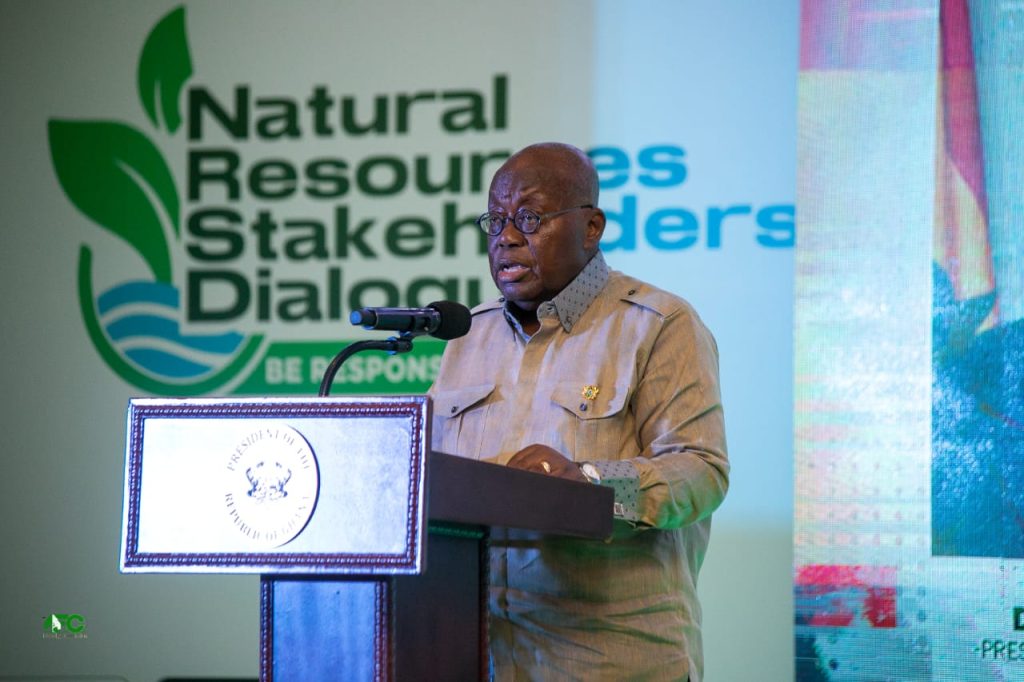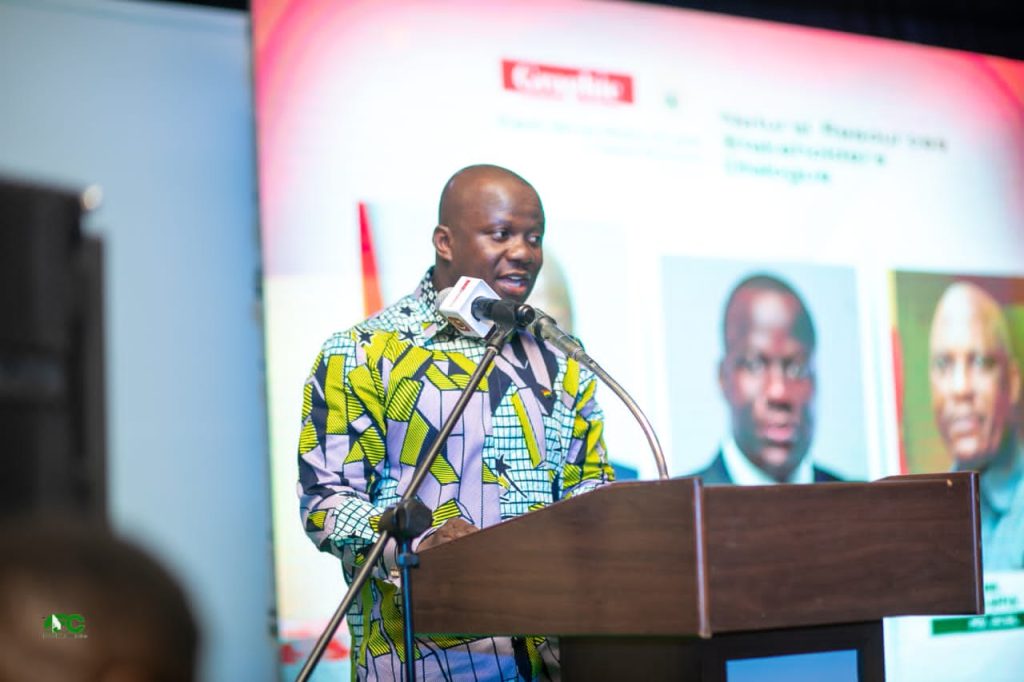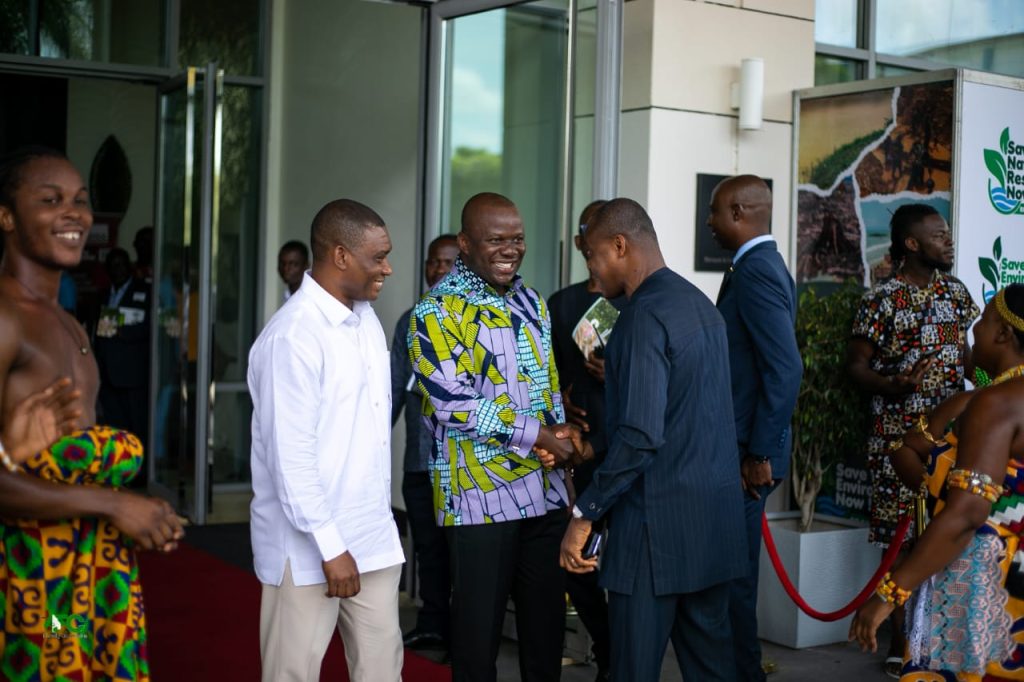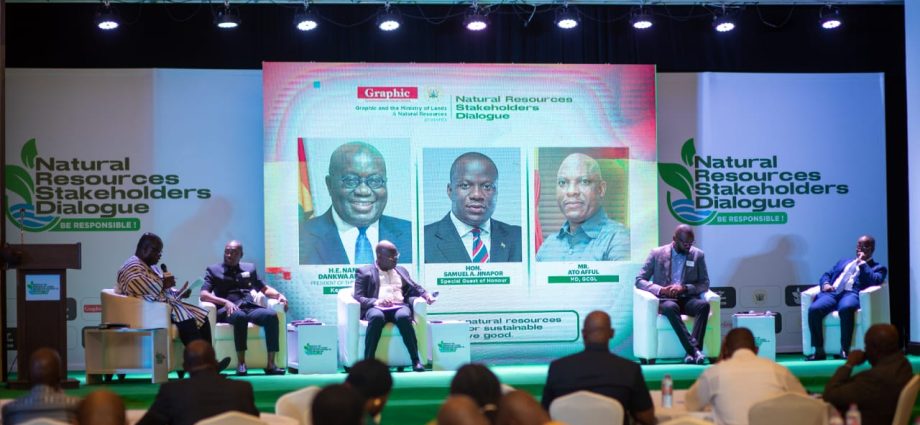The Ministry of Lands and Natural Resources (MLNR), and the Graphic Communications Group Limited have organized a 2-day Stakeholders’ Dialogue on Natural Resources, themed “Harnessing our Natural Resources for our Sustainable Collective Good”.
The Dialogue was held to provide a platform for panelists and participants to share practical perspectives to facilitate Ghana’s progress on harnessing its natural resources for the sustainable collective good of all.
Delivering the keynote address, the President of the Republic of Ghana, His Excellency Nana Addo Dankwa Akufo-Addo, disclosed the importance of natural resources to humankind, as one that cannot be overemphasized, as everyday lives depend, one way or the other, on our natural resources.
According to the President, the African continent is blessed with a lot of natural resources after centuries of exploitation. To him, Africa still holds about thirty percent (30%) of the world’s mineral reserves, and even higher proportions of gold, diamond, bauxite and manganese but the contribution of these resources to our socio-economic development has been somewhat awful.
“We should have been the richest continent in the world. The irony, however, is that African remains the poorest continent on the planet”, he lamented.
He stressed on the need to harness our natural resources for sustainable development, by ensuring that the exploitation of these resources does not destroy the natural environment that provides us with subsistence.
H. E Nana Addo Dankwa Akuffo -Addo added that, there is the need to tackle head-on the issues of illegalities in the extractive sector, including illegal mining and logging, which have over the years, been a source of destruction to our forests, water bodies and arable lands, and deprived us of the resources needed for development.
This he said, is a collective responsibility, and although Government has its role, its efforts will come to naught if we all fail to do our part in this exercise.
The Minister for Lands and Natural Resources, Honorable Samuel A. Jinapor, MP, in his address, assured that, the government remains committed to working with all stakeholders, to construct a sustainable and value-added natural resources sector.
According to him, in the forestry sector, aside the Green Ghana Project, the Ministry is implementing programmes such as the Ghana Forest Plantation Strategy, under which some 690,000 ha of forest have been cultivated between 2017 and 2022; the Cocoa and Forest Initiative; the Ghana REDD+ Strategy, under which results-based payments for emission reduction has been received; the Forest Investment Programme, and the Forest Law Enforcement Governance and Trade (FLEGT) Action Plan, through which we are tracing wood from the forest to final disposal, among others.
He emphasized that, stringent steps are being taken to cordon off and protect the forest resources from attacks by illegal miners and loggers, agricultural expansionists, and other drivers of deforestation and forest degradation.
“The management of natural resources, therefore, is not just about protection and exploitation, but also more importantly about sustainability, environmental protection, mitigating climate crisis, and ensuring optimal benefit for the owners of these resources,” he added.
The Managing Director for Graphic Communications Group Limited, Mr. Atto Afful,
said a lot has been said and done, however there is an opportunity to filter and disclose the thoughts put forth into concrete implementation plans through multi -stakeholder and national asset plans, that can be measured and developed.
He further urged stakeholders to approach natural resource management more holistically by balancing economic progress, environmental conservation and social welfare with revenues and growth or developmental aspirations.
“We aim to secure a more sustainable future and demand the approach of natural resource management more holistically”, he stated.
According to him, there is the need to promote responsible and sustainable mining practices for the welfare of the environment and wellbeing of Ghanaians.
The first day of the Dialogue ended with three separate panel discussions on Lands, Forestry, and Mining.
The panelists on each discussion was made up of persons selected from academia, regulatory bodies, custodians and civil societies.
The panel discussions addressed the issues affecting the afore mentioned sectors, measures put in place to tackle them, contributions and strategies put in place by stakeholders represented on the panel and the way forward in dealing with sustainable management of our natural resources.




